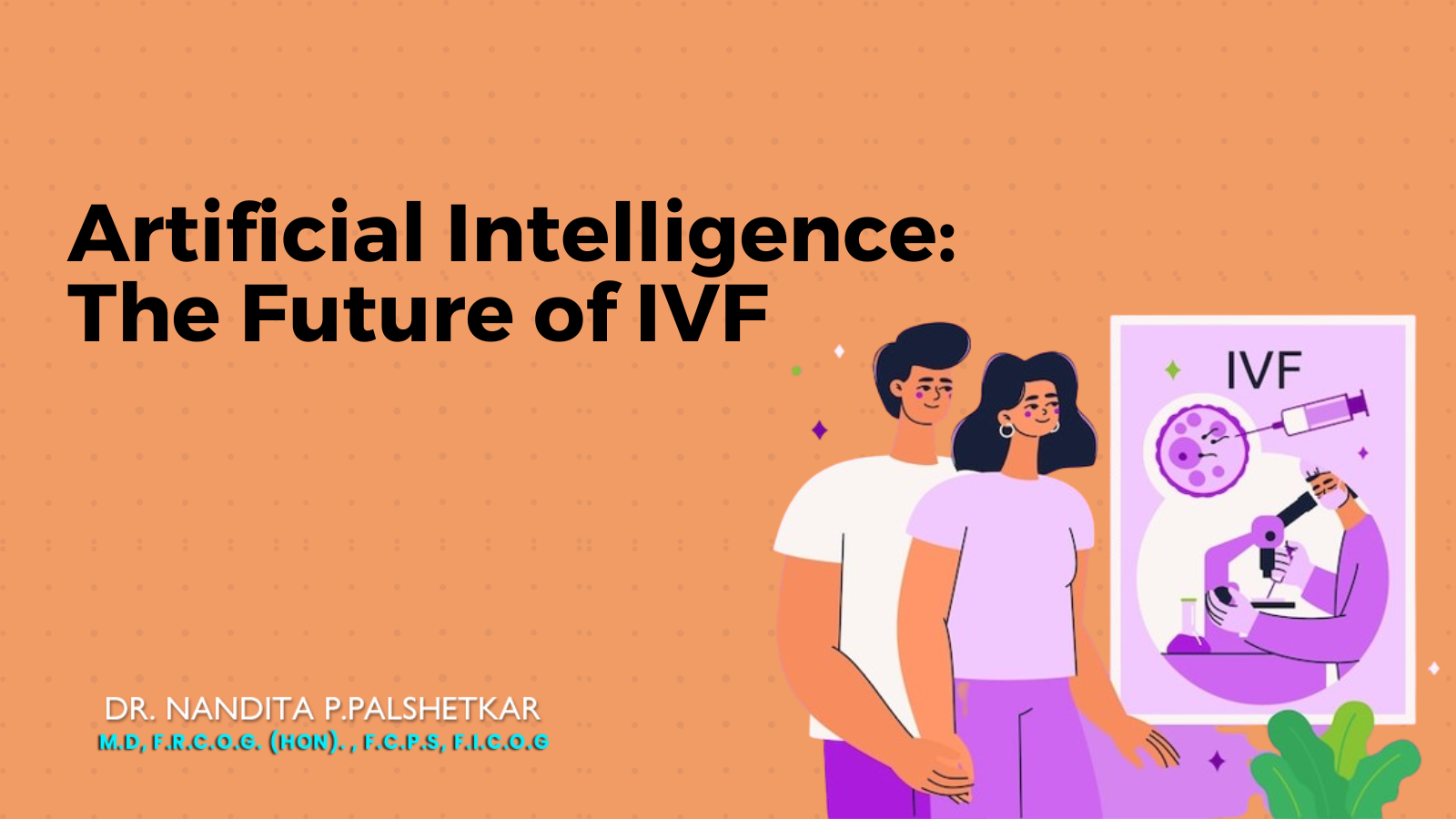

E-Brochure - Download Now!

For over 40 years, IVF has helped those with infertility issues and struggling to conceive naturally to become biological parents. Recent advancements in medical technology have significantly boosted IVF success rates. According to experts, one such medical technology, artificial intelligence (AI), has the potential to revolutionise IVF treatment outcomes in the years ahead.
This blog discusses how AI can be effectively used in IVF, its role in several critical aspects of IVF processes, and its benefits when integrated with IVF.
While it’s still in the early days, the use of AI in IVF has already shown promising results. AI algorithms analyse extensive IVF-centric patient data, including genetic history, medical history, and hormone levels, and automate decisions or analyses that clinicians and embryologists typically perform.
With more research and studies on the anvil, AI is expected to impact the IVF process in multiple ways with guaranteed positive outcomes for more and more people taking the IVF route.
AI can play a key role in several aspects of IVF, such as:
1. Predict Outcome: While IVF has helped realise the dreams of millions of parents worldwide, the treatment success rate has been affected by the inability to offer accurate outcome predictions. The integration of AI in IVF has enabled clinicians and embryologists to provide more accurate predictions about the treatment’s chances of success.
2. Embryo Selection: Traditionally, based on their visual examination of the embryos, embryologists select the embryo that they feel is most viable and has the maximum success rate. However, this selection process is subjective and can be incorrect. The role of AI in embryo selection gains more significance as AI uses algorithms with increased accuracy in embryo selection. Their results are based on analysis of relevant data such as images of embryos and patient information.
3. Optimise Treatment Protocols: Since the data that AI analyses is patient-specific and includes vital personal health-related information, the treatment plans are customised based on that unique data. Besides enhancing the efficacy of the IVF treatments, this ensures reduced risks of any complications well into the treatment.
4. Develop New IVF Technologies: IVF service providers are using AI to develop newer technological applications that will enable them to offer their patients more efficient and result-driven treatments. One such example is the AI-powered microscope that will automate the identification and tracking of sperm cells for enhanced accuracy.
Benefits of AI in IVF Treatments
Integrating AI with IVF is a revolutionary technological innovation that benefits the IVF service provider and the expectant parents. While AI systems provide clinicians and embryologists with accurate input at several crucial stages in the IVF treatment, leading to increased guaranteed results, patients are more hopeful about the success of their treatment.
The benefits of AI in IVF treatments include:
1. Increased IVF Success: AI analyses extensive IVF-centric complex data and offers optimum solutions for a successful pregnancy. Their predictions are based on data and free from human intervention and bias.
2. Tailored Treatment Plans: AI-designed treatment plans are tailored to suit the patient’s specific needs as the plans are based on data analysis of that particular patient. They maximise success rates while minimising the treatment’s side effects.
3. More Affordable Treatment: IVF treatments often involve several cycles, which can be expensive. With more AI-powered accurate predictions and higher chances of success, you may need fewer IVF cycles, which means reduced expenses.
4. Shorter Treatment Cycles: With its automated processes, AI expedites the IVF cycle by streamlining the processes, decreasing waiting times, and limiting the number of visits during IVF stimulation without impacting the quality of care.
It’s an exciting time for fertility specialists all across the globe due to the promising results shown by the integration of AI in IVF, with its positive impact on success rates and personalised patient care that is only expected to increase in the future.
Keeping up-to-date with the latest IVF technologies, Dr. Nandita Palshetkar, one of the best IVF practitioners in the country, has been using AI in her treatment plans for over a year. According to her, their practice uses AI to recognize patterns across vast quantities of images that are invisible to the human eye and to accurately predict which features of an oocyte image are most related to successful pregnancy outcomes.
Book an appointment with Dr. Nandita Palshetkar, an IVF specialist of global repute, to benefit from her immense experience, expertise, and pioneering efforts in IVF. Contact us today for more information on our treatments and the IVF technologies we offer.